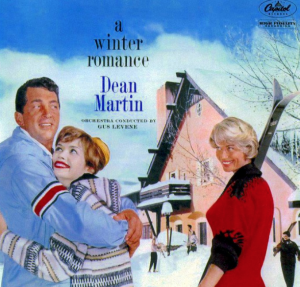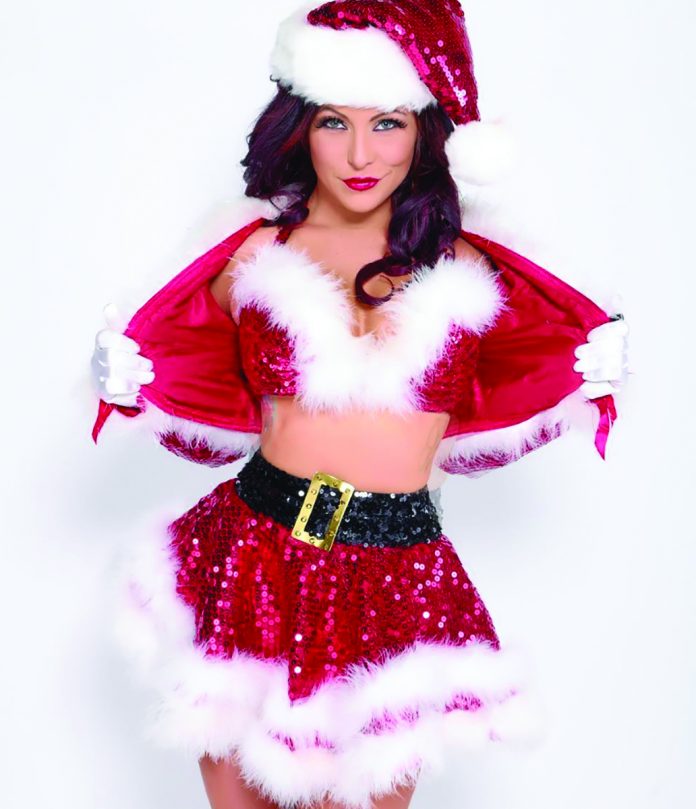(Photo: ED’s 2018 Entertainer of the Year Natasha Nova; photo by Alfonso Moreno of Mad Creativity)
As I’m writing this article, I’m listening to holiday music and getting “festive” as the ED staff is celebrating our office Christmas Party. We’ll have our traditional pot-luck lunch and “white elephant” gift exchange. There’s also a twist this year: We’re heading out to a strip club tonight.
It’s been a long, long time—almost 20 years—since the ED staff has celebrated the holidays with g-strings and lap dances. Why? Well, because we had a large contingent of female staffers for quite some time, and it’s not cool to “make” someone go to a strip club if they’re not down with it. Call it political correctness if you want, we just call it being considerate. But this year, the girls are open to it, so we decided to go “old school” with our Christmas shindig (trust me, the guys aren’t complaining).

But while we’re on the subject of holiday music and political correctness … allow me to digress a bit and discuss the latest “controversy.” The Christmas holiday song “Baby, It’s Cold Outside” has been in heavy radio rotation for the past eight decades, and is on Billboard’s list of top 100 Christmas songs of all time at #31. But in the wake of the “#MeToo” movement, this classic tale of a holiday hook-up has found itself on the outside looking in. A number of radio stations have banned the song, suggesting that the lyrics point to a date-rape scenario, where the male character in the song is trying to keep the female character from leaving his house on a cold winter night:
“Maybe just a half a drink more.” “I ought to say no no no, at least I can say that I tried.” “Well, maybe just a cigarette more.” “Baby, it’s cold outside!”
[Lyrics in “Baby, It’s Cold Outside,” as sung by the female character]
Not surprisingly, there was an immediate uproar following these bans. I’m a pretty liberal guy, and that’s not something I’m going to apologize for. But even I (and more than a few other “liberals” I know) feel like banning “Baby, It’s Cold Outside” has stretched “#MeToo” beyond its limit.
 Let’s start with the song itself. “Baby, It’s Cold Outside” was written in 1944 and covered most famously in 1959 by Marilyn Maxwell & Dean Martin. The reality is, “Baby, It’s Cold Outside” reflects dating etiquette in the 1940s and ‘50s. After the 1920s and ’30s where women were supposed to date as many people as they could at the same time (it enhanced their social standing), dating rules changed in World War II America. Now, men and women were expected to go “steady,” date only one person at a time and get married in their early 20s. I wouldn’t go so far as to call it “puritanical,” but it was certainly a stricter time for dating and relationships.
Let’s start with the song itself. “Baby, It’s Cold Outside” was written in 1944 and covered most famously in 1959 by Marilyn Maxwell & Dean Martin. The reality is, “Baby, It’s Cold Outside” reflects dating etiquette in the 1940s and ‘50s. After the 1920s and ’30s where women were supposed to date as many people as they could at the same time (it enhanced their social standing), dating rules changed in World War II America. Now, men and women were expected to go “steady,” date only one person at a time and get married in their early 20s. I wouldn’t go so far as to call it “puritanical,” but it was certainly a stricter time for dating and relationships.
“Baby, It’s Cold Outside” is the story of a man and woman who obviously like each other. If you read the lyrics, both characters seem to want to use the weather to justify her staying at his house longer than she’s “supposed to.” They both understand society’s dating rules, but they’re tempted to disobey. The female character is being coy; 1940s/50s society expects her to say “no” even if she wants to say “yes.” [Interesting side note: “Baby, It’s Cold Outside was written by Frank Loesser, composer of musicals like “Guys and Dolls,” for himself and his wife to perform at dinner parties for a laugh. He labeled the two vocal parts “mouse” and “wolf.” Loesser sold the rights to the song, and it was performed for the first time commercially in a movie called “Neptune’s Daughter.” The song was sung in the same scene by two couples; actress Betty Garrett actually sings the part as the “wolf” to Red Skelton’s “mouse.”]
Could someone write this song today, with these lyrics, given the current atmosphere we live in? I don’t think so—by today’s standards, these lyrics could come across as very date-rapey. But if we look at “Baby, It’s Cold Outside” through the prism of when it was written—and given its stature as a classic holiday song—it seems ridiculous to ban it. If you’re trying to bolster an important cause like #MeToo, then the last thing you want is to have something like the “Baby, It’s Cold Outside” controversy attached to it. In other words, to condemn “Baby, It’s Cold Outside” as a song that encourages date rape is to almost make light of date rape.
Sometimes, a Christmas song is just a Christmas song.





























